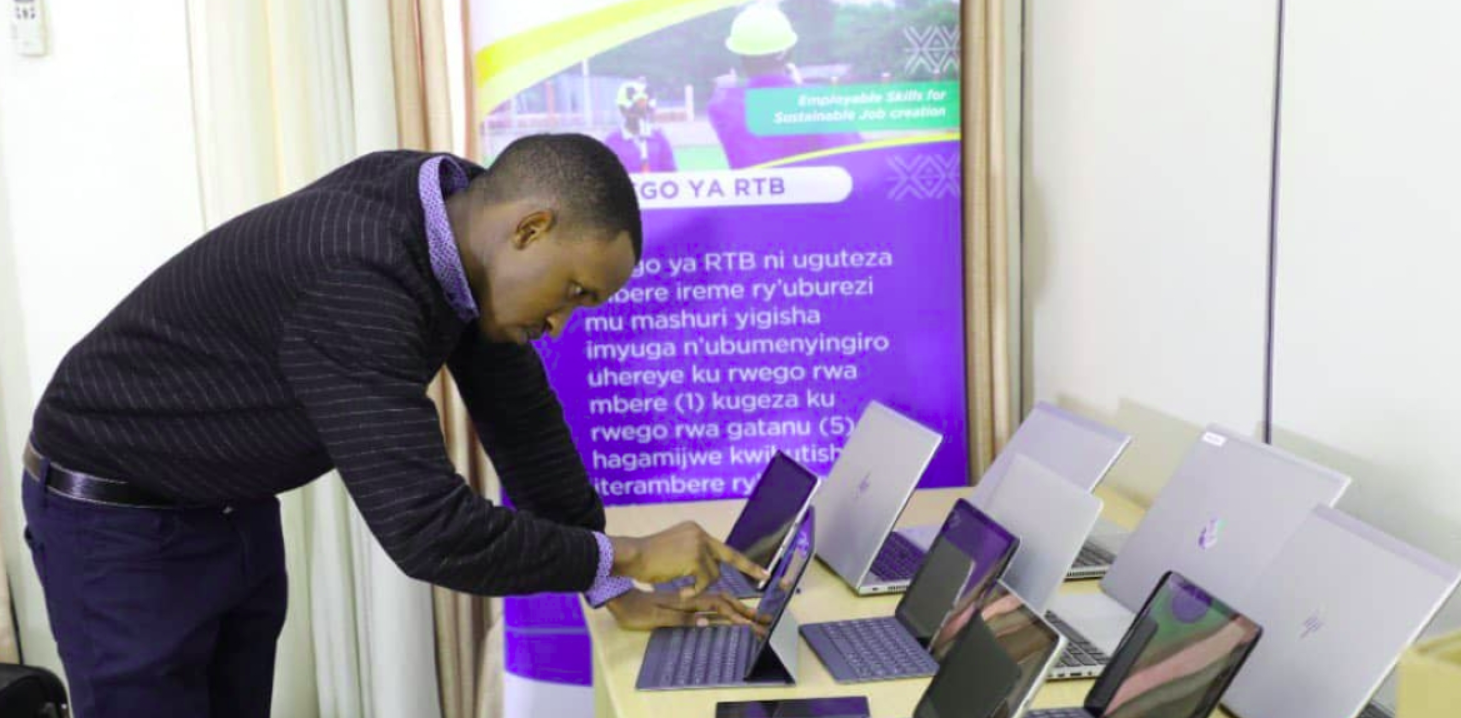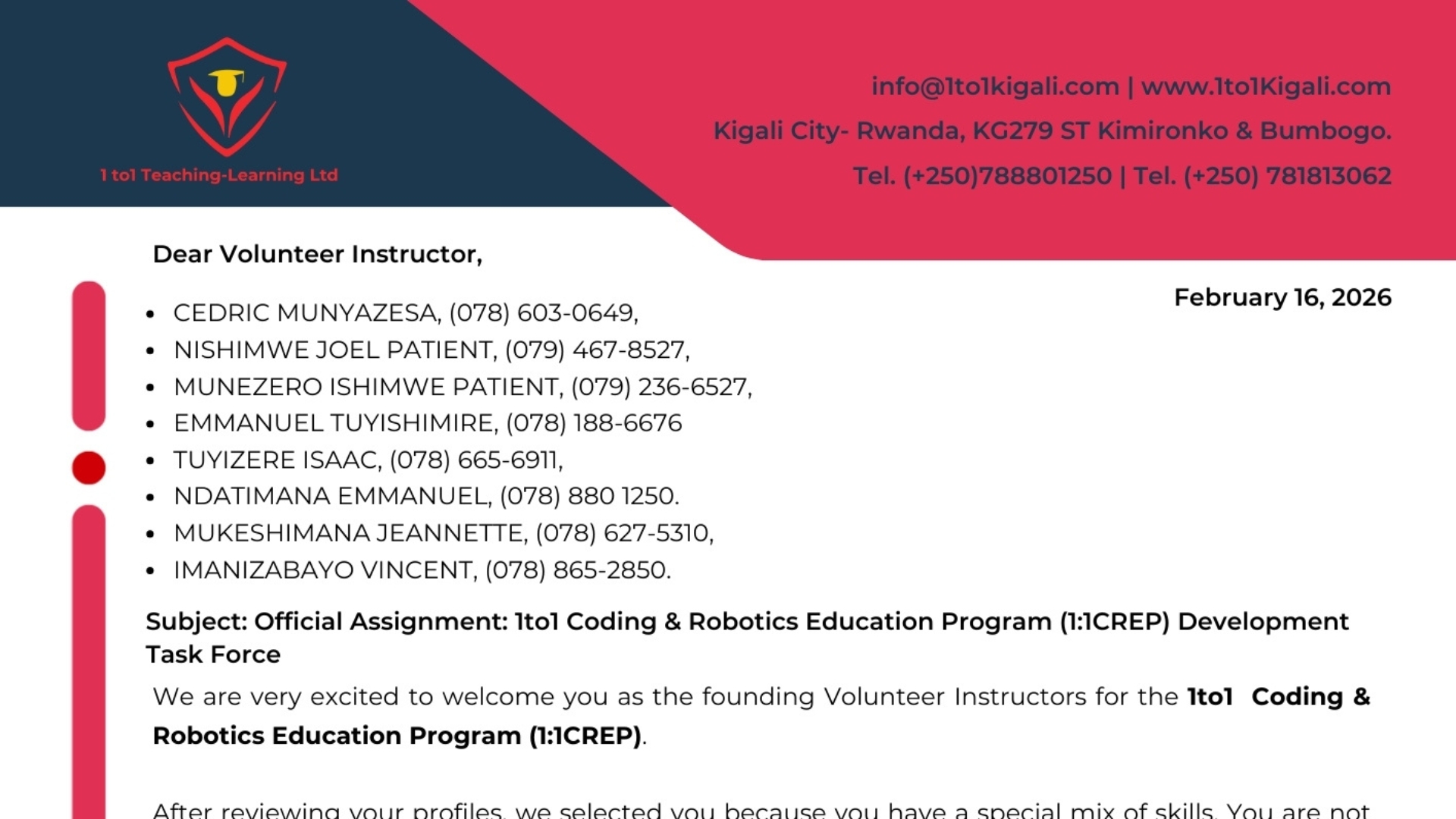Rwanda’s Technical and Vocational Education and Training (TVET) sector is undergoing a shift as laptops replace chalkboards, helping teachers integrate digital tools into everyday lessons and preparing learners for a technology-driven job market.
At Groupe Scolaire Batima TSS in Bugesera, ICT teacher Elyse Tumushime described her laptop as essential for lesson planning and classroom delivery. “With the right tools, teachers provide better-structured content that students can easily understand,” she noted.
So far, more than 5,200 laptops have been distributed to instructors in public and government-aided TVET schools. According to Paul Umukunzi, Director General of the Rwanda TVET Board (RTB), the initiative is supported by digital skills training, video tutorials, and capacity-building programs designed to help teachers plan lessons, use educational software, and access online resources.
“This effort directly bridges the digital gap,” Umukunzi explained. “Teachers now create and use digital materials that not only enhance learning but also prepare students for a workforce where technology is central.”
He added that the long-term goal is to align Rwanda’s vocational training with international standards, making graduates more competitive. Upcoming measures include continuous professional development, e-pedagogy training, and a new ePortfolio system to support teachers’ daily work.
Connectivity is also expanding. Currently, 348 TVET schools are connected to 4G and fiber internet under initiatives such as the Smart Education Project (SEP) and Operation Green Network (OGN). About 103 schools enjoy 25 Mbps fiber, though reliability remains a challenge.
Trainers are already seeing benefits. In Burera District, computer architecture instructor Emmanuel Dusengimana said laptops have made his research and teaching more effective. “With internet access, I can research, teach better, and safely store documents online,” he said. In Gakenke, administrator Patricie Uwitonze confirmed that the “one-laptop-per-trainer” approach, combined with wider connectivity, is improving education quality.
Looking ahead, Rwanda’s ICT Sector Strategic Plan aims to achieve full 4G coverage by 2029, expand high-speed internet to all schools and institutions, and modernize digital infrastructure. The government also targets training at least 1.5 million citizens in advanced ICT skills, creating 50,000 digital jobs. Alongside connectivity, offline eLearning and digital libraries are being developed to ensure resources remain accessible even during outages. Partnerships with telecom companies are also exploring affordable options such as zero-rating educational platforms.





This is splendid
By the way! 😜
Kudos to RTB.